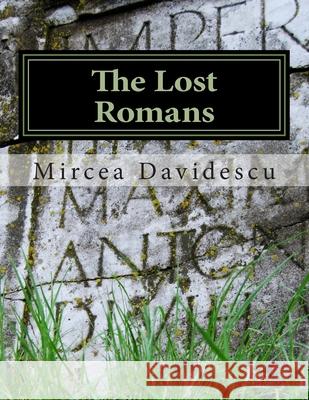The Lost Romans: History and Controversy on the Origin of the Romanians » książka
The Lost Romans: History and Controversy on the Origin of the Romanians
ISBN-13: 9781490532530 / Angielski / Miękka / 2013 / 198 str.
In AD 101 the Roman Empire undertook the largest military campaign in its history: Trajan's Dacian Wars. It was followed by the Roman colonization of Dacia, the greatest colonization effort in antiquity, and what would be the first step in the making of the Romanian people. Yet, less than 200 years later, Rome would have to abandon Dacia, along with its hundreds of thousands of colonists, due to an unprecedented onslaught of barbarian invasions. This book covers the fate of those left behind, how they survived the fall of the empire and adapted to barbarian rule. How these Roman colonists, the ancestors of the Romanians, survived and persevered in a land that was host to a "Who's Who" list of barbarian tribes is both fascinating and mysterious. The Lost Romans seeks to set the record straight and answer how the Romanians became the island of Latin culture they are today. With an armory of historical and archaeological evidence, and a dash of good humor, this book takes the reader on a ride through over two thousand years of civilization (and a bit of barbarity). Mircea's comedic and critical view of history spares no one: barbarian kings, Roman emperors, and outlandish historical theories are all given an equal roasting in the book's quest to uncover the truth about what happened in this little-known part of Europe. This book provides an entertaining and illuminating read for those wishing to learn more about late antiquity in Southeastern Europe, and how the Roman Empire acted as a force for cultural change on the barbarians at its borders. It also focuses on an aspect oft-forgotten, namely the cultural contributions of the wandering "barbarian" tribes on the local Romanized people. Both the history of the Romanians, and the controversies that have surrounded it, are thoroughly investigated. Helpful illustrations and an accessible bibliography containing hundreds of sources provide for a highly informative overview of late Roman and early Romanian history, and give a firm launching pad for those wishing to delve deeper into Roman, Romanian, and Eastern European history in general.
Zawartość książki może nie spełniać oczekiwań – reklamacje nie obejmują treści, która mogła nie być redakcyjnie ani merytorycznie opracowana.











